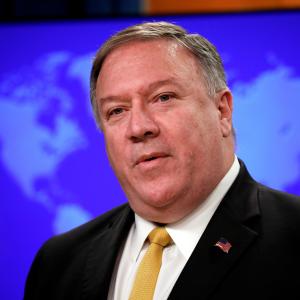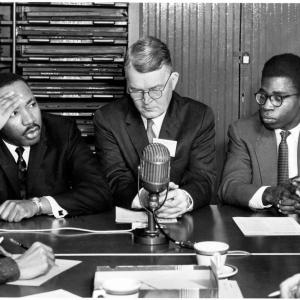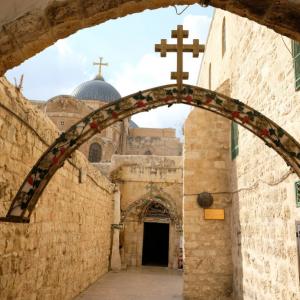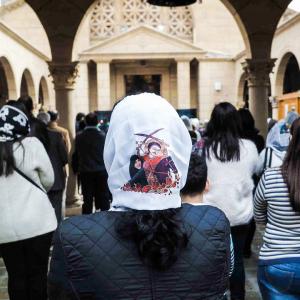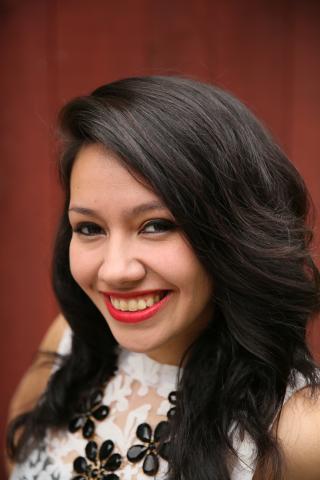
Amy Fallas is a Ph.D. student in history at the University of California, Santa Barbara and specializes in modern Middle East history. Her research and writing focuses on religious minorities in Egypt and Lebanon. She has lived and studied across the Middle East, including Morocco, Egypt, Lebanon, and Oman.
Posts By This Author
American Protestantism's Commodification of the Middle East’s ‘Holy Lands’
Edward Said’s profoundly influential 1978 book, Orientalism, describes the term as the West’s portrayal of the East as decadent, static, exotic, and uncivilized. Most importantly, Said’s work emphasizes how these constructions of this exotic ‘other’ are rooted in the West’s need to define itself as different from and superior to the Orient. While his analysis focused on European and American essentializations about Islamic civilization, another implication of orientalism is what these same Western observers thought about their co-religionists in the birthplace of Christianity.
In the Garden of Eden with Shakira
The prevailing stereotype of unpredictable and hyper-sexualized brown women’s bodies.
The prevailing stereotype of unpredictable and hypersexualized brown women’s bodies.
Religious Liberty Shouldn’t Come at the Expense of Human Rights
From July 16-18, Secretary of State Mike Pompeo hosted the second annual Ministerial to Advance Religious Freedom, which is touted as the “the largest religious freedom event of its kind in the world.” More than a thousand attendees representing delegations from 106 countries arrived in Washington D.C. to discuss challenges to religious liberty and how to collectively address the threats facing people of faith worldwide.
U.S. Evangelicals Trivialize Global Religious Persecution
While the Trump administration has been vocal about confronting religious persecution for global Christians, many of its domestic and foreign policies only serve to exacerbate the conditions that make Christians in these regions more vulnerable. The Iraqi Christian Chaldean community in the United States has been susceptible to deportations in the aftermath of Trump’s executive orders. The “Muslim travel ban” has done little for Christian migrants and other vulnerable religious communities from nations now under travel restrictions to the United States.
Are Christian Schools at Odds with Social Justice?
On Dec. 30, 1959, over 3,000 Christian students gathered in Athens, Ohio, at the 18th Ecumenical Student Conference. Participating youth leaders and activists developed methods of engaging with social and political transformations at the turn of the 1960s. One of the key speakers was a 30-year-old Baptist preacher who emphasized a religious as well as civic prerogative for students, claiming: “whenever a crisis emerges in history, the church has a role to play.” While the specific crisis Martin Luther King Jr. referred to was the fight for civil rights in the segregated American South, he urged Christian students to challenge injustice undergirding all systemic discrimination, oppression, and racism at home and abroad.
I Love Icons. Am I Betraying My Parents' Faith?
I constantly ask myself if I’m betraying my family by responding to the rituals and traditions they so earnestly sought to escape. But then I think about their conversion stories and how they made these decisions to become closer to Jesus.
Syria's Christians Reckon With Survival

Image via Rafael Medina/flickr
Given the extreme physical and existential threats facing Christians in Syria, support for Assad and the Syrian Army likely come as a surprise to those who view the state as a primary cause for the community’s plight. Why would a group frequently targeted for state-sanctioned violence continue to pay lip service to a murderous regime?
Targeted Yet Faithful: Egypt's Copts, Wary of Restrictions, Celebrate Virgin Mary Feast
In Egypt, religious identity is stated on each resident's identification card. Egyptian names often reflect religious affiliation, and many Christians have Coptic crosses tattooed on their wrists. These cultural norms were practice before the increase in violence, but the introduction of rigorous screenings, checkpoints, and religious “profiling” has made these differences more acute.


